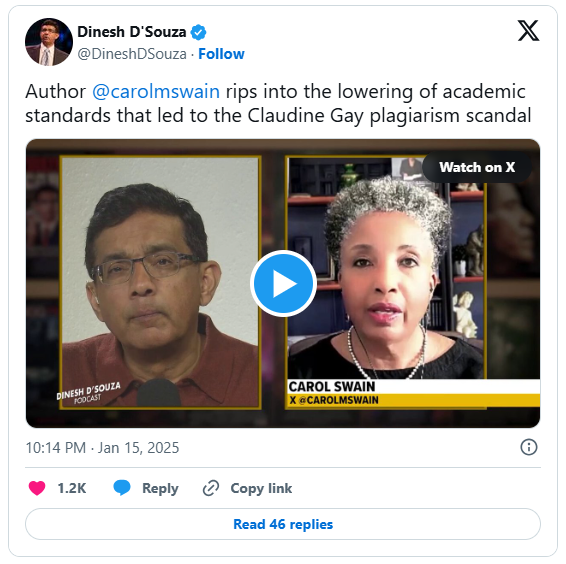In recent years, the erosion of academic standards in higher education has become a growing concern. The recent plagiarism scandal involving Harvard’s president, Claudine Gay, is a glaring example of how these issues are coming to light.
This controversy underscores a troubling trend: the prioritization of superficial achievements over substantive academic integrity. As I’ve argued before, the lowering of standards in the name of inclusivity often leads to unintended consequences, such as a dilution of merit and excellence in our institutions.
Harvard’s prestige has long been tied to its reputation for academic rigor and intellectual honesty. However, when standards are compromised, scandals like these tarnish not only the individuals involved but the institution’s legacy as a whole.
This is not to suggest that we abandon efforts to create opportunities for underrepresented groups or to champion diversity. However, when equity is pursued without a firm commitment to integrity and merit, we risk doing more harm than good. The consequences affect everyone—students, educators, and the broader society that depends on academic institutions to foster leaders and innovators.
The Claudine Gay plagiarism scandal should serve as a wake-up call. If we want to restore the public’s trust in academia, we must return to upholding the principles that define true scholarship: intellectual rigor, ethical accountability, and an unwavering commitment to truth.
The solution isn’t to turn back the clock but to move forward with clarity and purpose. Let’s aim to create a system where inclusivity and excellence go hand in hand—where no one has to wonder whether credentials or positions are earned or given.







